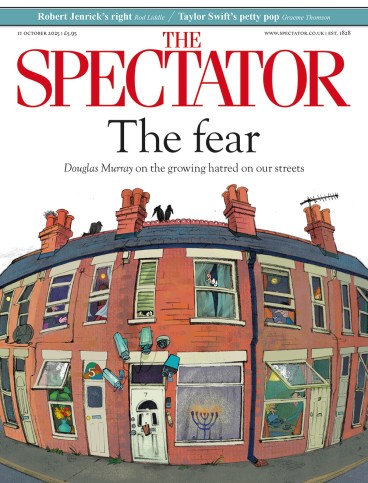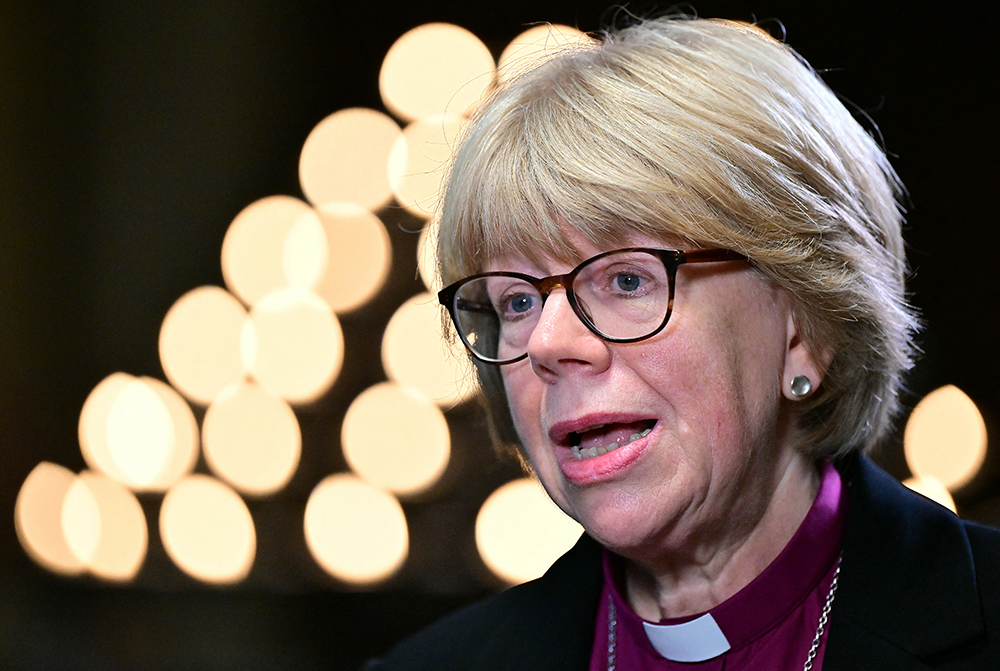
There have been 106 Archbishops of Canterbury since Gregory the Great declared Augustine his ‘Apostle to the English’ in 597. Their number has included Catholics and Protestants, progressives and traditionalists, academics, politicians, even a tank commander. But none had ever been a woman. Sarah Mullally’s appointment is a historic moment for the Church but it comes at a moment of peril for Anglicanism.
The Church of England seems to be in a state of perpetual crisis. Few would argue that it serves the world’s more than 100 million Anglicans well or that it sits at the heart of public life. Sunday attendance has fallen by 40 per cent in the past two decades, while the Church suffers near–continual scandals, closing churches and a population increasingly defined by multiple faiths or none.
Mullally too has been criticised by abuse survivors for insufficient attentiveness
Mullally’s elevation follows Justin Welby’s resignation over a failure to investigate historical allegations of abuse by prominent lay member John Smyth. Not only has Mullally’s appointment taken much longer than the Catholic Church’s election of a new Pope – which took a mere 17 days – but it has exposed divisions among the faithful. Her appointment has been met with ‘sorrow’ by the Global Fellowship of Confessing Anglicans, a communion of conservative churches opposed to the blessing of same-sex relationships.
Mullally led part of ‘Living in Love and Faith’, the Church’s review into sexuality. Blessings for gay couples in a civil partnership or marriage were approved in 2023, yet little consensus has been reached. Progressives are disappointed by anything short of full equality; conservatives by any move in that direction. The Bishop of Leicester, who led the process, recently resigned, despairing at the remote prospects for agreement.
Mullally’s most immediate problem, however, will be the one that forced her predecessor’s resignation: how to handle historic abuse claims. In July, the Church voted to establish a £150 million relief fund for victims of abuse. On her appointment, Mullally claimed that the Church’s ‘history of safeguarding failures has left a legacy of deep harm and mistrust’. Yet she too has been criticised by abuse survivors for insufficient attentiveness when overseeing a safeguarding review for Welby.
Mullally’s critics fear that she will be Continuity Welby. A former NHS chief nursing officer, she is the episcopal embodiment of what Blue Labour founder Maurice Glasman brands the ‘lanyard class’: the cadre of progressive busybodies who populate the country’s public-sector bureaucracies and HR departments. Within the Church of England, that means promoting progressive dogma and empowering middle management instead of ministering to souls.
The most egregious example of lanyard Anglicanism has been the payment of slavery reparations at the expense of parishes. Following a 2022 report criticising historical links to the slave trade, a £100 million fund was launched to channel money to ‘black leaders’. Not only is it unclear how and to whom this money will be dispersed, but it comes as many parishes struggle financially, with more than 200 churches closing in the past decade. According to Nigel Biggar – the priest, ethicist and peer – the fund is a ‘historically groundless’ act of self-flagellation.
The irony is that the most successful churches are those offering self-confident Christianity of a kind with which the C of E’s leadership often seems uncomfortable.
The quiet revival in church attendance, which The Spectator celebrated recently, is occurring among traditional congregations. The young Christians who are reviving churchgoing are attracted by attentive Bible study, moral seriousness and ritual.
An exemplar is St Bartholomew the Great in the City of London. The church is ably led by Marcus Walker, also head of Save the Parish, a campaign against C of E centralisation and in favour of proper funding for smaller churches. St Barts’s pews are packed, thanks to traditional services, a professional choir and high-quality preaching rooted in academically rigorous theology. It is to Mullally’s credit that Walker says her appointment gives him ‘hope’. He has praised not only her dutiful service to London’s churches, but her desire to increase funding for the poorest parishes and to ‘trust local people’ in their management. Mullally has also led the opposition to assisted dying within the House of Lords – putting practical political action ahead of posturing.
The first female Archbishop will need to unite what remains of our national church in a way her male forebears were unable to do. She ought to cling to the words of William Laud, one of her most illustrious predecessors: ‘Most gracious Father, we pray to you for your holy Church. Fill it with all truth; in all truth with all peace. Where it is corrupt, purge it. Where it is in error, direct it. Where anything is amiss, reform it. Where it is right, strengthen and defend it. Where it is in want, provide for it. Where it is divided, heal it and reunite it in your love; for the sake of your Son, our Saviour Jesus Christ.’







Comments